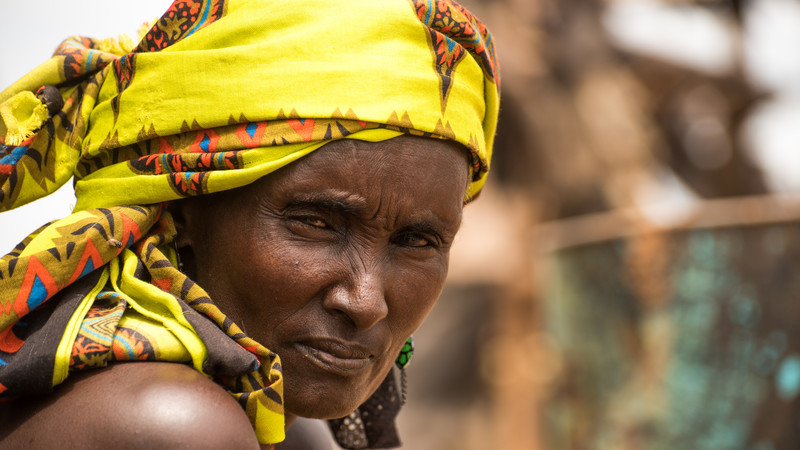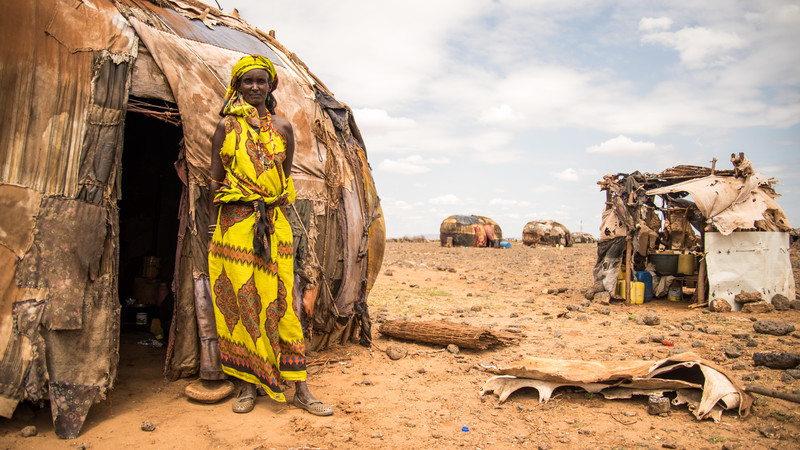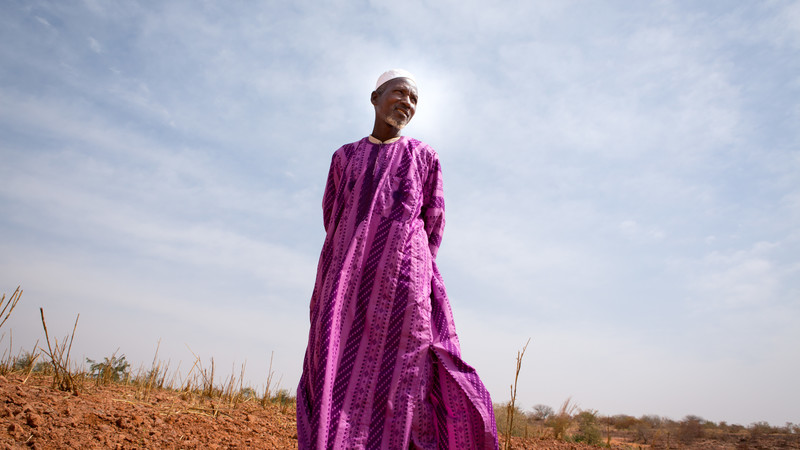This is a climate emergency

Mark Chamberlain, CAFOD Communications Officer, describes how people’s lives are changing around the world because of climate change.
I’m lucky. I travel overseas with CAFOD and spend time with people who I might never meet if I wasn’t doing this job. They tell me about their lives – the problems they face, their hopes, their dreams.
This experience has taught me so much and has helped me to grow as a person. One of the many things I’ve learned is the truth of what we actually mean when we talk about ‘thirst’, ‘hunger’ and, ultimately, ‘climate emergency’.
Get involved with our climate campaign
Animals dying in Kenya
In Kenya I met a woman called Doko Molu. She told me a story that I still think about today.
During the worst weeks of that climate crisis, Doko was weak from hunger. This was a real, biting hunger. She described it like so many other people do who are close to starvation – a gnawing pain that makes you so weak, you can’t work or barely move. Her family were too.

She was tired from not getting enough water. But she was alive. She also had animals, but they were dying slowly. She knew she had to get them to water before all of her stock – which are her livelihood and her savings – died. So Doko had to plan. Every day that terrible drought lasted, she had to calculate exactly how much water she could drink to stay alive and exactly how much she could give her animals to keep them alive and moving. Her plan was to try to reach a water point to get them a drink so that at least they wouldn’t die of thirst.
Change things now with our climate campaign
“At one point I gave up on life,” she said to me. “My livestock were dying. The animals were lying on the ground like the rocks there. Dead.”
Doko told me that she had 700 goats and sheep before the crisis. When the worst parts of the drought passed, she was left with 100.
I asked Isacko Jirma, a humanitarian aid expert who works with CAFOD in Kenya, about that terrifying climate crisis and why he thought there were more devastating droughts now than there had been. “Climate change,” he said.
Climate refugee: “Life is so hard here”

Sunni Abbas on the ‘shoreline of the Sahara Desert’
On the shoreline of the ever-expanding Sahara desert in Niger, West Africa, a man called Sunni Abbas told me how people were so thirsty from drought, they knew they would die in their community if they stayed there. If you were fit and able, you left everything to stay alive. He’d done it. His family had done it. His community did it. They did it because they had to stay alive.
I was shocked. An entire town had to migrate because of a drought caused by climate change. I asked Sunni Abbas why he thought his community migrated. He thought for a minute, then said, “Life is so hard here. The weather is changing, climate is changing.”
Get involved with our climate campaign
In Nicaragua, Ligia Briones – an inspirational leader of a women’s union – told me how people in her country had been camped by the side of roads in the capital, Managua, because their coffee harvest had failed. Why had this happened? A virus had become more resistant to colder weather because of the unpredictable climate.
It’s time to act
People across regions and continents who may not have much are feeling these effects now. All the people I have mentioned talk about climate change causing these problems. I don’t prompt them. They want to tell me. And the reason they want to tell me about this is because it is happening in their lives right now.
Climate change for them isn’t a picture of a polar bear sitting on a melting ice block. It isn’t a picture of a cloud of smoke billowing from an unnamed power station. It’s real and it’s happening to them and their family. They are feeling the impact now and the impact is as serious as it gets.
Climate change, from my experience working with people overseas, is not something that might happen in the future. It’s not a ‘maybe’. And it’s definitely not something that can be denied.
There are millions who, if they could meet you, would tell you the simple truth: climate change is happening now.